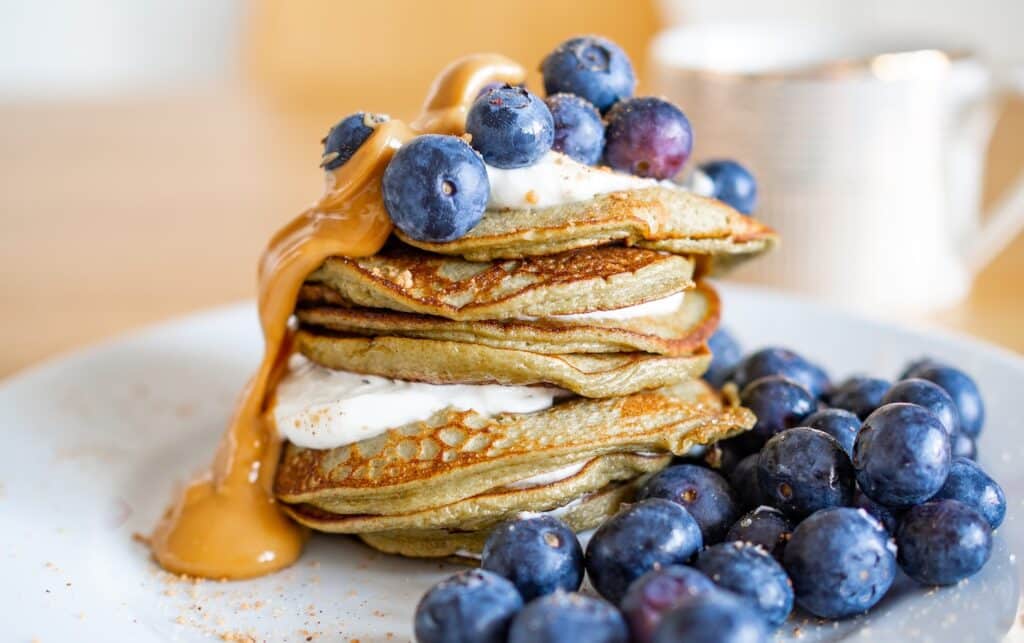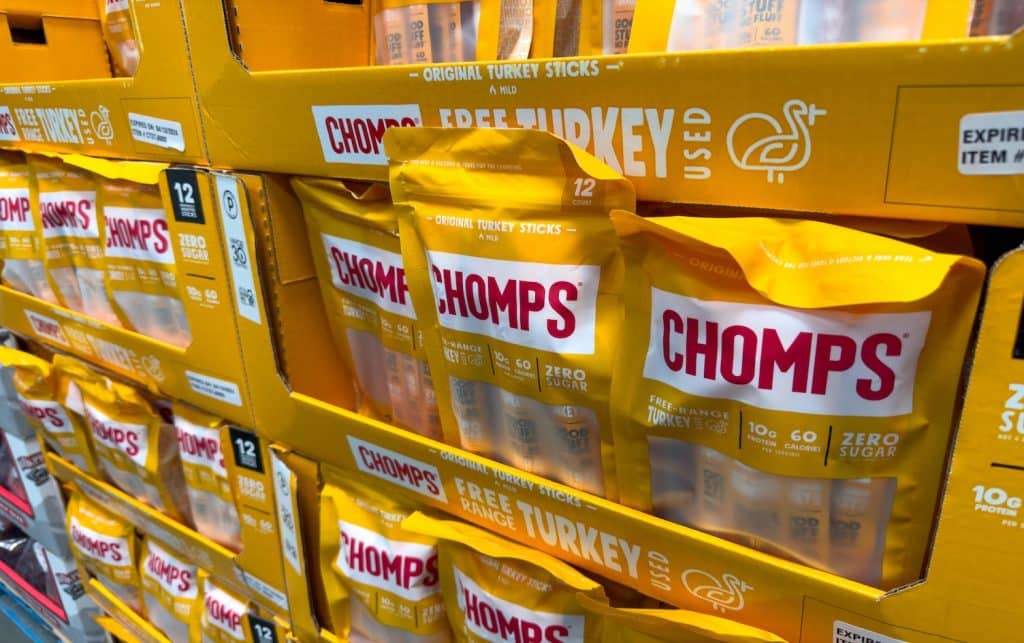If you follow fitness influencers on social media, you’ve likely heard them all praise protein, no matter what nutrition plan they follow.
Even if you’re not on Instagram and TikTok, you’ve probably heard that protein is one of the key nutrients needed to maintain good overall health.
Eating energy-dense, protein-rich foods throughout the day can help build and maintain muscle mass, keep you feeling fuller longer, and stabilize blood sugar levels throughout the day.
With so many benefits to protein, it’s no wonder fitness gurus are showing so much love for it.
If you’re looking to add more protein to your meals throughout the day, here are nine high-protein foods for energy that registered dietitian and MyFitnessPal scientific advisor Erin Palinski-Wade recommends.
How does protein affect your energy levels?
Protein is one of the macronutrients your body needs to function at its best.
“Eating high-quality protein at every meal and snack throughout the day is a great way to optimize energy levels,” says Palinski-Wade.
Research shows that eating a high-protein diet helps maintain balanced energy levels in the body. It can also aid in weight loss, muscle function, and muscle growth.
“Protein helps slow down the digestion of carbohydrates, providing a more stable energy balance throughout the day. Protein also helps suppress hunger and appetite, helping to prevent simple sugar cravings that can lead to energy crashes during the day.
Food and energy go hand in hand. Carbohydrates, especially complex carbohydrates, play an important role in energy production.
Mixing complex carbohydrates with high-quality sources of protein and fat can keep you energized for longer, powering you through the day.

9 high-protein energy foods recommended by nutritionists
High-quality protein is a powerhouse for your health. So, what are the sources of protein in food?
Here are nine great energy foods that anyone can try, including options for vegans and vegetarians.
1. Eggs: Get essential amino acids
Eggs are a complete protein with an impressive nutritional profile.
In addition to containing all the essential amino acids our bodies need, one large egg contains only 71 calories and 6.3 grams of protein.
“Starting the day with high-quality protein within an hour of waking up can help stabilize energy and appetite for the day ahead,” says Palinski-Wade.
Eating eggs for breakfast is an easy way to get your protein fix. There are so many delicious ways to prepare them and they only take minutes to make.
Here are some recipes to try:
2. Beans and Legumes: Benefit from Plant-Based Protein
Beans and legumes, such as chickpeas, lentils, and edamame, are rich sources of plant-based protein.
These high-fiber and high-protein foods are complex carbohydrates, which means they take longer to digest and don’t cause a spike in blood sugar.
Healthy adults need 25 to 30 grams of fiber per day, but most people eat only about half of that.
Interesting facts: Track nutrients like fiber and protein in the MyFitnessPal app, helping nearly 1 million members achieve their nutrition and fitness goals each year.
3. Fatty fish: Get Omega-3 fatty acids
Oily fish such as salmon, tuna, and sardines are great sources of protein and omega-3 fatty acids.
These healthy fats are essential for good health! They can help improve your heart health and may reduce inflammation—both of which support optimal energy levels.
Your body cannot produce omega-3s, so it is important to eat foods that contain them.
4. Almonds: Enjoy sustained energy all day long
Looking for a natural energy booster? Try almonds!
“Almonds are a good source of protein, healthy fats and fiber, helping to provide sustained energy throughout the day,” says Palinski-Wade.
Studies show that snacking on almonds can also help you maintain a healthy weight. Since they are nutrient-dense, they can satisfy your needs for longer while lowering blood sugar.
They are also a good source of magnesium, which helps prevent fatigue.
5. Greek Yogurt: More energy plus probiotics
Greek yogurt has twice the protein of regular yogurt and less sugar and sodium. It is a good source of probiotics that are good for gut health and is generally easier for people to digest. Because yogurt is rich in protein and complex carbohydrates, you digest it slowly, helping you maintain energy.
You can add it to so many different dishes! Try some of these recipes:
6. Quinoa: Eat complete protein and complex carbohydrates
Quinoa is a seed that makes a great substitute for carbohydrates like rice or pasta, and can also be used as a side dish in many different dishes. It is a complete plant-based protein that contains all the essential amino acids you need.
Since quinoa is a complex carbohydrate, it releases energy more slowly than simple carbohydrates, which take longer to be digested by the body.
Even better, quinoa contains 8 grams of protein, 5 grams of fiber, and is gluten-free.
7. Oats: Benefit from slow-release energy
Oats are an excellent energy food that you can enjoy at any time of the day. Another complex carbohydrate, your body digests oats slowly and releases energy slowly.
Oats are a whole grain with 26 grams of protein per cup of dry oats and are high in fiber.
Some people are hesitant to try oats because they remember the lumpy hot cereal from their childhood. To help you out, MyFitnessPal offers a treasure trove of healthy and delicious oatmeal recipes.
8. Chia seeds: balance blood sugar
“By balancing protein, fiber and fat, chia seeds can provide balanced blood sugar for stable energy levels,” says Palinski-Wade.
Just 2.5 tablespoons of chia seeds contain 5 grams of protein, 10 grams of fiber, and 8 grams of heart-healthy fat.
Chia seeds are a vegan protein source that you can add to almost any meal, such as salads, oatmeal, and smoothies. Chia seed pudding is also a great choice for a protein-rich breakfast or snack.
Recipes you may like: https://blog.myfitnesspal.com/pbj-coconut-chia-pudding/
9. Spelled: Enjoy long-lasting energy throughout the day
Spelled is an ancient grain, a whole grain that hasn’t changed much over the centuries.
Whole grains are a great food to increase energy because they take a long time to digest. Specifically, spelt contains a whopping 25 grams of protein per cup, along with a perfect combination of complex carbohydrates and fiber.
This grain is great on top of salads, mixed into stews, or even as part of a stir-fry. Don’t be afraid to get creative in the kitchen!


bottom line
Adding high-quality protein to each meal can help you achieve your daily goals.
“For sustained, long-term energy, focus on getting high-quality protein at every meal and snack, rather than getting most of your protein in just one meal,” says Palinski-Wade.
To help you keep track of how much protein you’re consuming at each meal, track your intake on MyFitnessPal. This way, you’ll instantly know how close you are to meeting your daily goals with each meal and snack.

